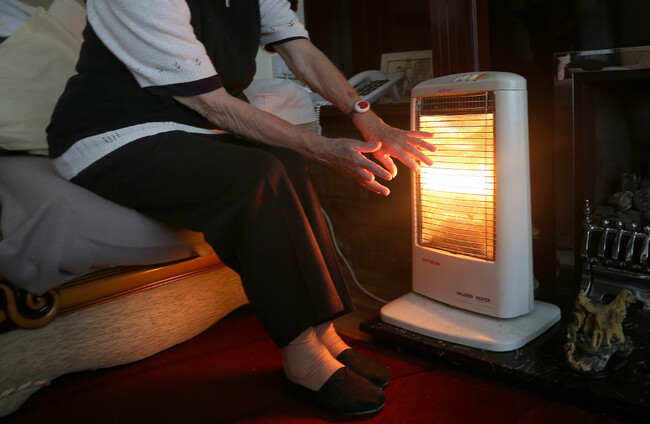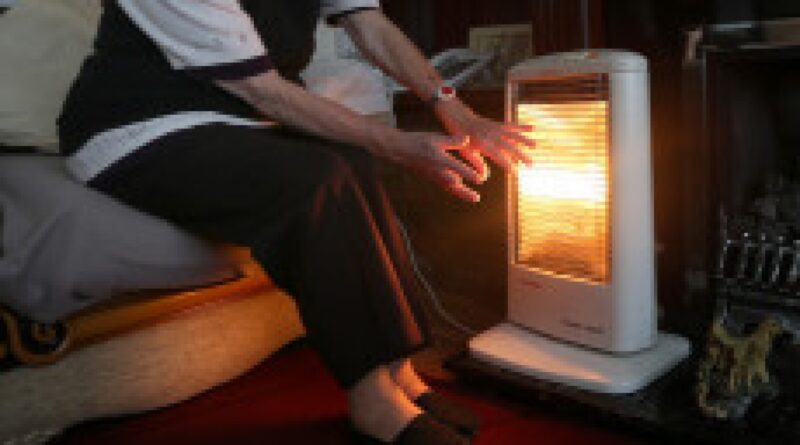Age Action warns older people face being ‘trapped’ in their homes over broken boiler ban

Age Action said that nearly 7,000 homes with older residents have no central heating. Alamy Stock Photo
Broken boilers
One local councillor in Waterford who has already seen the result of the rule change come into effect.
OLDER PEOPLE WILL be “trapped” in increasingly cold homes after the government directed local councils to cease grants to replace broken gas and oil boilers in private housing, an advocacy group has warned.
Age Action has said that the new rule is “too rigid and has no flexibility”, and doesn’t take into account Ireland’s “poorly insulated” one-off housing stock that often costs more to heat.
One local councillor in Waterford who has already seen the result of the rule change said it will mean a number of elderly people will be left “facing a cold winter” over the coming years unless the system is eased for older households.
It follows the Department of Housing, Local Government and Heritage instructing Ireland’s local councils to cease grants for the replacement of gas and oil burners for elderly people. This will come into effect from the start of next month.
It’s the result of new EU legislation included in the Energy Performance of Buildings Directive, previously adopted by the European Parliament and Council, which aims to reduce greenhouse gas emissions in the EU.
The Housing Aid for Older People Grant is for essential work to improve the condition of an older person’s home so they can continue to live there. It is aimed at people aged 66 and older living in poor housing conditions.
While gas or oil boilers can still be repaired under the scheme, they cannot be replaced with a new fossil fuel system.
The measure is meant to encourage people away from fossil fuels for their heating – directing them to transition to more sustainable air-to-water systems – but it has been described as short-sighted by Age Action’s senior policy specialist Nat O’Connor.
Instead, the group wants to see an “energy guarantee”, which O’Connor explained would see someone receive cash support to help pay their bills for the remainder of their life.
“This is a process that will take 20-25 years to transform the housing stock and various cohorts of older people are at risk of being left out,” O’Connor said.
O’Connor said the rule change is a particular issue for Ireland, with the country “riddled with atypical housing”. He noted that contemporary reports from the past 20 years showed that one-third of housing was unattached and one-off stock.
O’Connor said that Age Action has found that older people are concerned by climate change and want to adapt to it, but he believes the change flies in the face of past calls for a ‘just transition’.
“This is a real issue and our concern is that you can’t rush this,” O’Connor said. “With older people, they may not want their house turned up outside down due to illness and they may also not have the money to pay for a new system.”
Older people affected
O’Connor said the rule change poses a serious risk to older people here, pointing to Ireland having among the highest rate of excess winter mortality in Europe.
He pointed to CSO figures and Age Action research to demonstrate the precariousness facing a portion of the population.
An estimated 300,000 homes with poorer building energy ratings – E, F or G – are occupied by older people.
The CSO has also found that 6,941 homes that are occupied by older residents have no central heating, and over half of these cases are of older persons living alone.
Independent city councillor in Waterford Donal Barry told The Journal that he saw it as an “irrational decision to penalise older people for a minimal amount of carbon savings”, with the result being “unnecessary hardship and distress” to older people.
He said he had recently sought for a boiler to be replaced for one man in his area, only to be told by Waterford City and County Council that the incoming rule change will mean it’s very unlikely a replacement can be provided as before.
“The Government and the ministers responsible for older people and housing need to urgently address this issue and not cause undue hardship and suffering to our elderly,” he said.
European Commission direction
The Department of Housing, Local Government and Heritage told The Journal that it received final guidance from the European Commission in October, confirming that a grant scheme operated by Ireland and other EU member states “shall not finance the installation of stand-alone fossil fuel boilers” from January 1 next month.
“While the European Commission is sympathetic to vulnerable households its position is that public support should not lock these vulnerable households into the use of fossil fuels for the future,” the department said.
“If an application was received and granted previous to that date, the grant may cover a stand-alone fossil fuel boiler even if paid after the 1st of January.”
The department added that other options for funding can include installation of a renewable heating systems such as heat pumps or biomass heating, electrical heating or hybrid heating systems with a considerable share of renewables.
Separately, householders may be able to avail of the Sustainable Energy Authority of Ireland (SEAI) renewable energy grants, which can fund heat pump, solar thermal and solar PV systems as well as insulation to improve the energy performance of homes.

